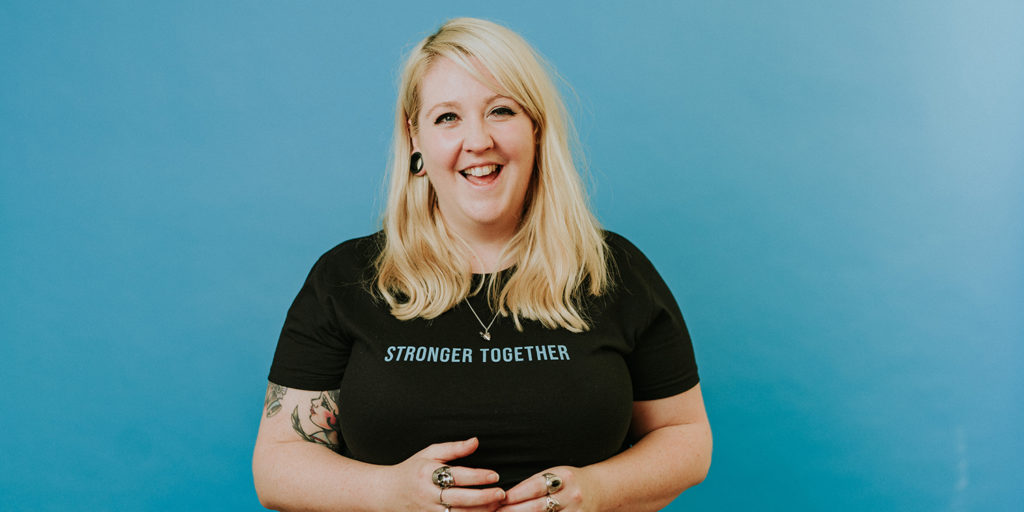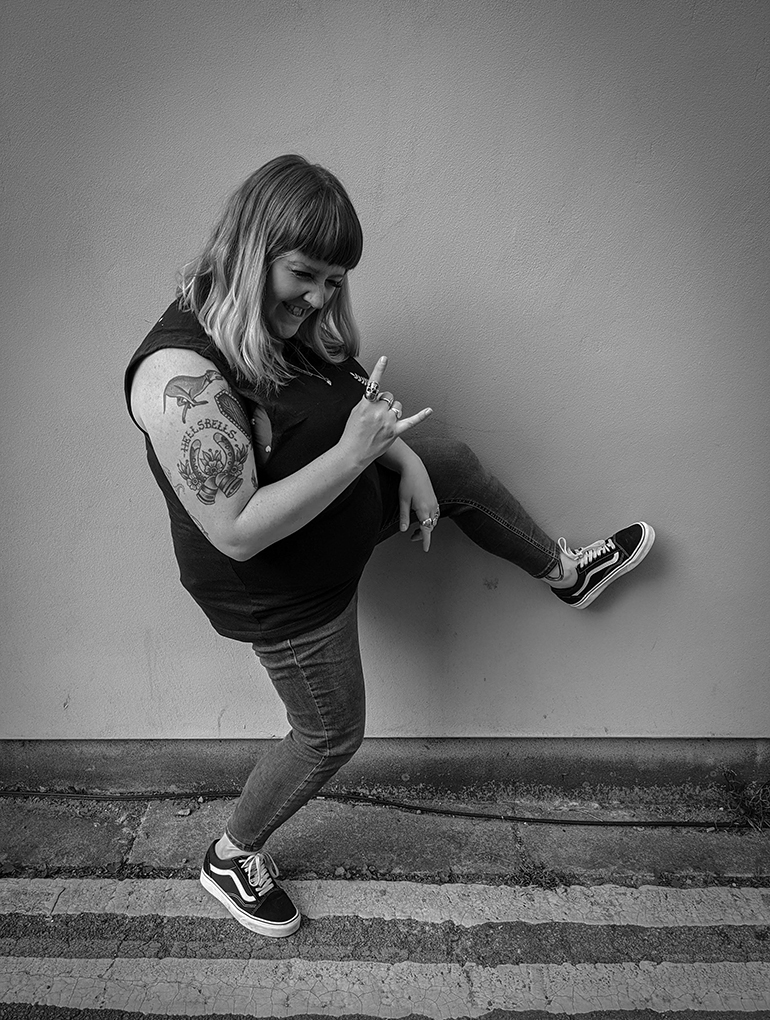Heads Above the Waves co-founder Hannah Morgan shares her thoughts on grief, lockdowns, and changing how we discuss mental health problems

Lockdowns across the country have made 2020 a difficult year for many people, but Heads Above the Waves co-founder Hannah Morgan has had it tougher than most.
Most years Hannah, who co-founded the mental health not-for-profit in 2013, is happily very busy in her day-to-day life, which meant that the UK-wide lockdown in March was something of a shock to her system – just not quite in the way she imagined.
“[To begin with] I felt so refreshed and so positive and optimistic, but I think that was just because life’s so hectic for me all the time,” she says. Being unable to work two of her jobs meant Hannah was able to focus her time on producing blog content for Heads Above the Waves.
Ebbs and flows
As someone who has dealt with many bereavements over her life, Hannah, now in her early 30s, is no stranger to death. But the passing of a close relative hit her hard, and having no support network in place caused more difficulty.
“It was really, really difficult because I didn’t have any of my usual coping techniques,” she admits. “I couldn’t go out and see my friends, or reminisce, or visit my family. I think lockdown robbed me of the way I’d normally grieve, or how I know how to grieve now, and I think that was a real turning point for me … I really started to struggle.”
Stress and self-doubt piled up, resulting in a cycle of being unable to work productively because of worrying about it too much. A month before restrictions were lifted in the summer, Hannah admitted to her boyfriend she had nothing left to give: “I felt like an empty vessel, like a jug I’d poured everything out of and it was just there, useless – I needed a top-up.”
Hannah isn’t afraid to admit that she struggles with change, so having to make so many adjustments to her lifestyle this year has been a struggle. She’s always very careful to take care of her own mental health, but admits to feeling overwhelmed more than once this year.
“This year has mostly just been panic and dread, and I think there are moments where your body just shuts down because you’re so numb from the stress of it all.” In summary, she says, “First it was fine, then it got tough, now I don’t really know what’s going on anymore!”
On the horizon
Looking forward, Hannah is keen to tackle the issues of inclusivity that plague discussions around mental health. She wants to spotlight the BAME, LGBTQ+, and traveller communities, and is also aware that many young men struggle to voice their concerns.
“I think as much as things have come on leaps and bounds, there’s still so much more to do to make sure that everybody can feel supported,” she says, keen to increase the reach of the current support networks. “Having the conversations is good, but let’s then look at the support that’s in place afterwards.”
Ever the optimist, Hannah is excited for what the future holds: “There’s a lot more work to do, but we’re ready to sink our teeth into it.”
Listen to this story:
Hannah’s top five tips for looking after yourself

- Don’t put too much pressure on yourself: “This is easier said than done, but try not to compare yourself to other people. Take things a day at a time, and don’t be so hard on yourself.”
- Figure out what stress looks like: “Recognise how stress feels to you so you can spot your patterns. Figuring out the tell-tale signs that you’re burned out will help you put things in place to look after yourself better.”
- Talk to people: “You can feel guilty for feeling stressed, but everyone’s in the same boat so we can all relate to each other. We’re all stressed, but that opens up more empathy from people.”
- Have things to look forward to: “Make plans with friends! They might not happen for one reason or another, but having things to look forward to is really helpful for a lot of people.”
- Self-care is your friend: “Do as much as you can for yourself. Sometimes you might not know what it looks like; it could be anything from treating yourself to a new record to just having an early night, but whatever it looks like for you works.”
If you’re struggling with your mental health or need support, you can visit the Heads Above the Waves website.
